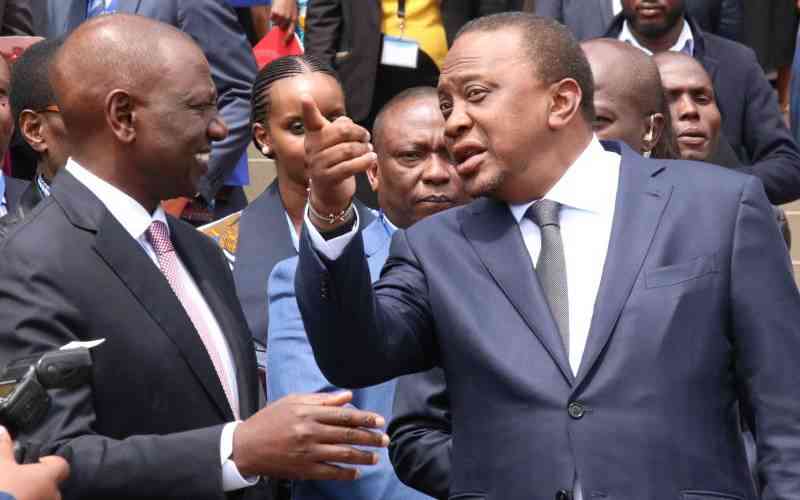
In one of the widely circulated video clips on social media, Deputy President William Ruto prides himself as a respectful deputy to President Uhuru Kenyatta, who is cautious enough not to antagonise or outshine his boss - a strategic move he believes will enable smooth transfer of power to him.
Today, however, as the DP angles to succeed Uhuru at State House, the envisioned "smooth transfer" of power is a mirage as Ruto and his three challengers are equally engaged in a stormy battle for the coveted political seat. This is in total contrast of the scenario painted in the video clip in question that went viral when signs of political fissure between Uhuru and Ruto became evident.